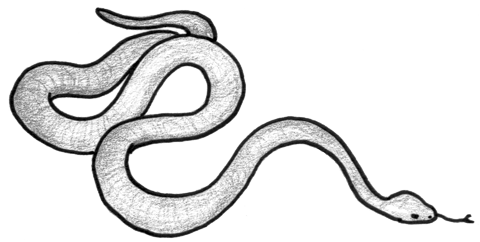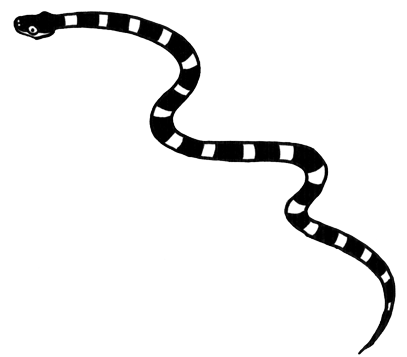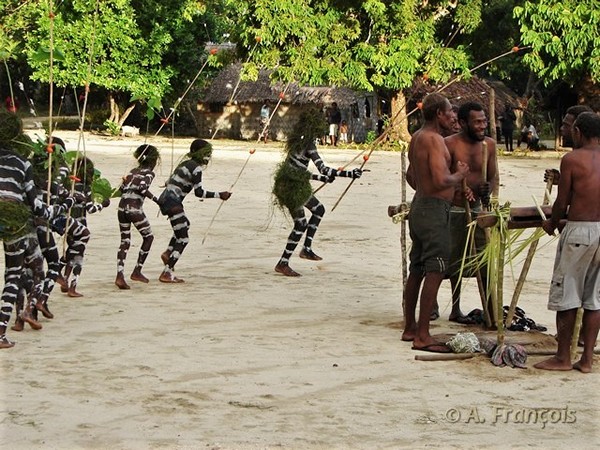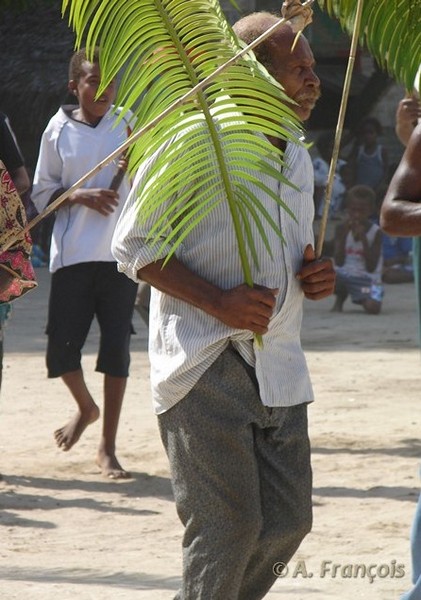m̄adeg ŋ͡mʷaⁿdɛɣ̞ adjective
Redupm̄am̄adeg
numerous, manynombreux, beaucoup
| Auu, na-m̄adeg meh!Hey, that's far too many!Aïe, ça fait beaucoup trop! |
| Kem mu-wuh nō-mōmō a na-m̄adeg a na-m̄adeg.We've fished loads of fish [lit. many, many]Nous avons pêché tout plein de poissons [litt. nombreux, nombreux] |
| Tog tō kē a le-myam en na-mtig ma-m̄adeg.Nowadays, coconut trees have spread all over the world.De nos jours, les cocotiers se sont multipliés dans le monde. |
| n-ēte mal m̄adeg goymany years ago [lit. years were many since]il y a de nombreuses années [litt. les années ont été nombreuses depuis] |
loanhip
ak m̄adeg transitive verb
reflexivedo plenty (?)look foolish in public; act shamefullytournure réfléchiese rendre nombreux (?)se ridiculiser en public; agir de façon éhontée
| Tshuy! Ak m̄adeg nēk!Hey! You should be ashamed (of what you just said)!Hé ho! Tu devrais avoir honte (de ce que tu viens de dire)! |
| Kē m-ak m̄adeg kē a hēywē.He really made a fool of himself.Il s'est vraiment ridiculisé. |
📙 Tournure sémantiquement opaque.
📘 This idiom is semantically opaque.
m̄ag ŋ͡mʷaɣ̞
<°mʷoˈa-ɣaPNCV*muʔabefore, in front, firstPOc*muqa
Cf. am̄ag
Aintransitive verb
rarebe the first, be a leaderrareêtre le premier, être le meilleur
| Iqet ne-myōs so ni-m̄ag.Ikpwet wanted to be the first / the winner.Ikpwet voulait être le premier. |
Bpostverb
(do V) in a leading position, before the others(faire V) le premier, avant les autres
| tig m̄ag stand first (in a line), be at the forefrontêtre debout en premier (dans une file), devancer |
Csuffix-m̄ag
lexical suffix referring to the first position: before, in frontsuffixe lexical indiquant la première position: avant, devant
| wotwot-m̄ag = wotwotm̄agfirstbornle premier né, l'aîné(e) |
m̄agde na-m̄agde naŋ͡mʷaɣ̞ⁿdɛ noun
📙 Cet arbre donne son nom au village de Qēgm̄agde, litt. “tronc (qēg) de Pisonia”.
m̄[a]ha na-m̄ha naŋ͡mʷha noun
Motamasoea disc, a planet; esp. the planet of morning and evening
étoile du matin (Vénus)
| Na-m̄ha mē-vēykal / ma-hatig.L'étoile du matin est sortie. |
m̄alkuyvet na-m̄alkuyvet naŋ͡mʷalkujβɛt noun
📙 Cette plante est typiquement associée au motif des fleurs, dans l'art pictural traditionnel: Tō nok yap na-tweh tēnge a m̄alkuyvet Alors je dessine une fleur de Gardenia (sur le masque).
synonymna-tweh qōnqōn
m̄alm̄al na-m̄alm̄al naŋ͡mʷalŋ͡mʷal strong noun
Motam̄alam̄ala
1 – girl, young woman, adolescentfille, jeune fille, adolescente
| Na-m̄alm̄al gōh itōktōk a itōktōk lēs, ay!Have you seen that girl, isn't she beautiful!Tu as vu cette jeune fille, comme elle est superbe! |
📙 Désigne surtout les adolescentes pubères, entre la petite fille (cf. yōvōk) et la femme accomplie (lōqōvēn). Par conséq. m̄alm̄al évoque les amours de jeunesse, qui précèdent le mariage et la maternité.
2 – espgirlfriend, fiancéespécpetite amie, fiancée
| m̄alm̄al minomy girlfriendma petite amie |
synonymbulsal
m̄alyow ŋ͡mʷaljɔw intransitive verb
<°mʷala-rowo
Cf. m̄[e]le~ ② ‘diaphragm’ + yow ② ‘startle’
startle with surprise; be astonishedsursauter de stupeur; être stupéfait
| Nēk ma-m̄alyow aē.You're astonished about it!Ça t'épate ! |
synonymmamakē
m̄[a]say ne-m̄say ŋ͡mʷasaj intransitive verb
Redupm̄[a]sam̄say
poor, destitutepauvre, misérable
| ige m̄asaythe poorles pauvres |
| Dō ne-m̄say, tateh gandō gengen.You and I are poor, we have nothing to eat.Toi et moi nous sommes pauvres, nous n'avons rien à manger. |
m̄at na-m̄at naŋ͡mʷat noun

Fauna
eni kaen snekserpent. Nom générique employé pour toutes sortes de serpents, sans autres noms particuliers, excepté le ne-m̄e ‘serpent de mer’
| Na-glo m̄atTel blong snek.La queue du serpent. |
📙 Mwotlap compte très peu de serpents. Cependant, cet animal est le protagoniste de plusieurs contes, partic. dans le mythe du premier cocotier. Dans une ronde, les enfants chantent la comptine du serpent "teltel i m̄atm̄at"
m̄[a]tak na-m̄tak naŋ͡mʷtak noun
Motam̄ataka
Flora
Puzzle tree (Sterculiaceae), bsl. Namatalarbre (Sterculiacées), angl. Puzzle tree, bsl. NamatalKleinhovia hospita.
m̄ay na-m̄ay naŋ͡mʷaj noun
Motam̄ara
Birds
1 – Green-winged Ground Emerald Dove, 26 cmColombe turvert, sorte de tourterelle, 26 cmChalcophaps indica.| Gēn vay vag yō a na-m̄ay en, tō kē ni-bah.On danse deux fois la Tourterelle, et puis c'est fini. |
📙 Le na-m̄ay est reconnu comme étant l'une des formes les plus anciennes du na-mag (na-mag tē-n-ēte), et par conséquent les plus prisées.
synonymna-mag non na-m̄ay
m̄[a]ya ŋ͡mʷaja
Motam̄arae
Aadjective
Redupm̄[a]yam̄ya
s.o., s.th.funny, laughable, amusing; who likes jokingqqch, qqndrôle, rigolo, marrant; qui aime la plaisanterie
| Ne-m̄ya a ne-m̄ya !That's really funny!Qu'est-ce que c'est drôle ! |
| Nēk ne-m̄ya lēs, ay!You're a real laugh, you are!Qu'est-ce que tu es marrant, toi ! |
| Kōyō vēlēs m̄aya geh.They are both as funny as each other.Elles sont aussi drôles l'une que l'autre. |
Bpostverb
to provoke laughterde façon à faire rire (Cf. yēyē)
galgal m̄aya intransitive verb
m̄e ne-m̄e nɛŋ͡mʷɛ noun

Motamai
Fauna
1 – Black-banded sea kraitTricot-rayé, serpent marin caractérisé par ses rayures noires et blanchesLaticauda semifasciata.Mythology
2 – succube, démon féminin tentateur, génér. nuisible
Pouvoirs du serpent de mer ✧ ne-m̄e
Nēk so dēmdēm meh hiy na-lqōvēn, tō ne-m̄e ni-tig na-lqōvēn nan ; tō kē ni-galeg nē-dēmdēm nōnōm ni-qlen̄.
‘Si ta pensée est obsédée par une femme, le serpent-de-mer se métamorphose en cette femme, et te rend fou.’
Sur la plage, le serpent transformé en femme me séduit pour me faire l'amour ; je mourrai à la tombée du jour. Parfois, ce démon (na-tmat) est un bon génie, notamment s'il s'agit d'un serpent mâle transformé en femme: si je garde secrète ma relation avec lui durant six mois, il accepte d'exaucer tous mes vœux de richesse ou de bonheur.

Dance
3 – traditional dance of the Seasnakedanse traditionnelle du Serpent de mer
| Ne-m̄e en, nēk so taq hiy.Pour la danse du serpent de mer, il faut se pencher en avant. |
m̄[e]key na-m̄key naŋ͡mʷkɛj noun
Motamakaru
EthnologieDiverses légendes lui sont associées. En partic., après l'avoir mangé, il faut se débarrasser de ses arêtes (suwyeg vasgēt ni-hiy), car si un chien les mange, c'est signe que je mourrai dévoré par un gros poisson.
m̄el1 ne-m̄el nɛŋ͡mʷɛl noun
Anthropology
2 – espcycad palm used to count daysspécfeuille de cycas utilisée pour compter les jours
Compter les jours ✧ Counting days ✧ ne-m̄el
Anciennement, on dénombrait les jours en arrachant (hap, gin) un à un les folioles d'une palme de cycas (ne-m̄el), plante sacrée.
Babahne m̄el en a nok hap qēt, tō nō-qōn̄ nan ēgēn !
‘Je viens d'arracher le dernier brin de mon Cycas: c'est donc aujourd'hui le jour J.’
‘I have just torn off the last leaf of my Cycas, so this is the right day!’

Anthropology
3 – cycad palm used as a symbol of high rank, e.g. during public dances (na-hawhaw, no-yon̄yep…)feuille de cycas indiquant un haut rang honorifique, par ex. lors de danses (na-hawhaw, no-yon̄yep…)
seena-tvusm̄el
Magic
4 – cycad palm, insofar as it is endowed with magical powers against the forces of deathpalme de cycas, en tant qu'objet doté de vertus magiques contre les forces de la mort
| Kē mu-suw kē mi ne-m̄el nen, mo-won kē – na-taqm̄ēn nen mo-won i won en mo-won qēt kē van.resurrection sceneAs she stroked [the dead man] with a cycad palm, [the witch] began restoring his body: she restored it on and on and on, until he fully recovered.scène de résurrectionTout en caressant [le mort] à l'aide d'une palme de cycas, [la magicienne] s'affairait à reconstituer son corps, pendant de longues heures, jusqu'à ce qu'il fut entièrement reconstitué. |
m̄eldēl ŋ͡mʷɛlⁿdɪl numeral
cent, centaine. Se multiplie obligatoirement à l'aide du préfixe vag- ‘fois’ + radical numéral
| m̄eldēl (vag-tiwag)cent [litt. cent (fois-une)] |
| m̄eldēl vag-tēl vēpnegi tēvēlēmtrois cent cinq [cent fois-trois “plus” cinq] |
m̄[e]le1 na-m̄le naŋ͡mʷlɛ noun
Motam̄alau
Birds
Incubator Bird, a dark colour bird similar to fowl, 32 cmMégapode, sorte de poule sauvage au plumage noir, 32 cmMegapodius freycinet.
m̄[e]le~2 na-m̄le naŋ͡mʷlɛ noun, relational
<m̄ala-
1sgna-m̄lek3sgna-m̄lan
Anatomy
rarediaphragmrarediaphragme
| Na-m̄lek mo-yow aē.astonishment[my diaphragm jumped at this] I startled.stupeur[mon diaphragme a sauté] J'ai sursauté (de stupeur). |
m̄ey1 ŋ͡mʷɛj noun
PNCV*mwerachild, person (of)
ancchild, babyarchenfant, bébé
derivativenētm̄ey
m̄ey2 ŋ͡mʷɛj relativiser
PNCV*mwerachild, person (of)
Cf. m̄ey ① 'child'
Grammar
1 – +deictic(this, that) one; he/she: forms a noun phrase, semantically human, as specified by the deictic+déictiquecelui, celle (-ci, -là); il/elle: forme un syntagme nominal, sémantiquement humain, précisé par le déictique
| Iqet en, kē ni-ol van qele nōk, m̄ey en ni-lam̄heg kē.Ikpwet stretched his arm like this, but the other one tried to hit him.Ikpwet tendit le bras comme ceci, mais l'autre essaya de le frapper. |
derivativeim̄ey
m̄ey3 ŋ͡mʷɛj adjective
m̄[e]ye na-m̄ye naŋ͡mʷjɛ noun, dependent
Motam̄ere
+ bare Nperson rich in ‹qqch›+N nupersonne riche en ‹qqch›
| Kēy na-m̄ye qo / na-m̄ye ban.customary wealthThey are rich in pigs / in honorific armbands.richesses coutumièresIls sont riches en cochons / en bracelets honorifiques. |
m̄[e]ye-sēm na-m̄ye-sēm naŋ͡mʷjɛsɪm
Anoun
Redupm̄[e]yem̄ye-sēm
rich in moneywealthy, rich personrich en monnaiepersonne riche, fortunée
| Nēk wo na-m̄ye sēm, no mas vap hōw l-eh.If you are rich, I must specify it in my ode (which I compose in your honour).Si tu es riche, je dois l'indiquer dans mon ode (que je compose en ton honneur). |
| ige m̄eyem̄ye sēmthe rich (people)les riches, les gens riches |
RemÉcrit en un ou deux mots.
NoteWritten in one or two words.
m̄[ē]lēgleg na-m̄lēgleg naŋ͡mʷlɪɣ̞lɛɣ̞ noun
Motam̄aleg
Birds
White-eye, bsl. Nalaklak: a small bird corresponding to two speciesLunettes, bsl. Nalaklak: petit passereau correspondant à deux espèces proches
1 – Vanuatu Yellow White-eye, yellowish-green, 12 cmZosterops de Vanuatu, au plumage jaune, 12 cmZosterops flavifrons.
2 – Grey-backed White-eye, yellow-green and grey, 13 cmZosterops à dos gris, au plumage jaune et gris, 13 cmZosterops lateralis.
📙 La variété Z. l. valuensis est propre à l'île de Mwotlap (Valuwa).
m̄ēt1 ŋ͡mʷɪt
POc*motu
Aadjective
Redupm̄ētm̄ēt
thin rope, stem+broken, broken in two or several piecescorde, tige fine+brisé, cassé en deux ou plusieurs morceaux
| Ne-telefon mē-m̄ēt.The telephone's cut off.Le téléphone est coupé. |
Bpostverb
1 – after transitive Vcause ‹s.th.› to be detached or divided into pieces; cut off ‹s.th.› by an action Vaprès V transitifagir sur ‹qqch› de façon à le détacher ou le diviser en morceaux; couper ‹qqch› en faisant l'action V
| bolol m̄ēt na-mtigcut off a coconut by twisting itdétacher une noix de coco en la tournant |
| hel m̄ēt nē-dēln̄e qo.cut off the pig's ears (with a knife)couper les oreilles du cochon (au couteau) |
| No tu-kuy m̄ētm̄ēt qiyig nagōm qiti !Ogre's formulaI'll eat off your head in little pieces!formule de l'OgreJe vais te dévorer la tête en petits morceaux! |
2 – fig(do V) partially, incompletelyfig(faire V) à moitié, de façon incomplète
| se m̄ēt n-ehsing a song in partchanter une chanson de façon incomplète |
| hi m̄ētstop in the middle of the music (hi)s'interrompre au milieu de la musique (hi) |
| vap m̄ēttell half the story, cut short, summarizedire à moitié, abréger, résumer |
m̄ēt2 nē-m̄ēt nɪŋ͡mʷɪt noun
POc*motu
1 – forest, esp. forest zone under human control; low density bush (opp. nē-m̄ēt won, the dense forest)forêt, spéc. zone de forêt maîtrisée par l'homme; brousse à faible densité (opp. nē-m̄ēt won, forêt dense)
| Ne-mtēltēl qele na-gayga hay lē-m̄ēt.It's as thick as forest lianas.C'est épais comme les lianes de la forêt. |
| Et-vētne m̄ēt meh te gōh.It's not really the thick of the forest here. [lit. the 'middle of the forest']Ici, ce n'est pas trop la forêt profonde. [litt. le ‘milieu de la forêt’] |
📙 Le terme est couramment associé à l'utilisation des plantes (semi-) sauvages, que l'on va prélever en brousse: plantes alimentaires, plantes médicinales, bois de construction, bois de chauffe…
2 – espclearable and cultivable bush land; garden areas, situated on high ground; by meton. the garden (opp. na-pnō, the coastal village)spécbrousse défrichable et cultivable ; zone des jardins, située en montagne; par méton. le jardin (opp. na-pnō, le village côtier)
| Ige del kēy qēt lē-m̄ēt. Taem nen, taem hilhil ēgēn.They all went into the bush: it was the clearing season.Ils se rendirent tous en brousse: c'était la saison des défrichages. |
| nu-su m̄ēt sumodpleasure garden, public park [little bush]modjardin d'agrément, parc public [petite brousse] |
m̄ētm̄ēt ŋ͡mʷɪtŋ͡mʷɪt intransitive verb
Redup. m̄ēt ‘broken’
back, arms, legs+exhausted, resulting from a physical effortdos, bras, jambes+fourbu, éreinté suite à un effort physique
| Nē-klan ni-m̄ētm̄ēt, veg kē n-ētan ba na-tqan nē-dēw.She's wacked out, because she's pregnant and her belly weighs her down.Elle a le dos éreinté car elle est enceinte, et son ventre lui pèse. |
synonymqōgqōg
M̄ēyig ŋ͡mʷɪjiɣ̞ placename
Merig: îlot habité, situé entre Gaua (Alkon) et Merelava (M̄eylap), dans les îles Banks
m̄[i]lig na-m̄lig naŋ͡mʷliɣ̞ noun
m̄olm̄ol ŋ͡mʷɔlŋ͡mʷɔl
Motamolemoleto cool oneself in a breeze
M̄otlap ŋ͡mʷɔtlap
Aplacename

1 – ancsouth-west part of the island of Motalava, opp. district of Valuwa (Aplōw) in the north-eastancpartie sud-ouest de l'île de Motalava, opp. district de Valuwa (Aplōw) au nord-est
📙 Les deux districts parlaient anciennement deux dialectes distincts (resp. le mwotlap et le volow), jusqu'à l'extinction du volow vers 1985.
HistThe two districts once spoke two distinct dialects (resp. Mwotlap vs. Volow), till Volow went extinct around 1985.
Badjectiveto-M̄otlap
s.o., s.th.from Motalavanative or belonging to the island of Motalavaqqch, qqnde Motalavaoriginaire ou propre à l'île de Motalava
| ige to-M̄otlapthe people of Motalava, Motalaviansles gens de Motalava, les Motalaviens |
| na-lqōvēn to-M̄otlap vitwaga woman from Motalavaune femme de Motalava |
| no-hohole to-M̄otlapthe Mwotlap language, Mwotlapla langue mwotlap, le mwotlap |
| Nok vap to-M̄otlap qōtō.Allow me to speak in Mwotlap (opp. Bislama) a few moments.Permettez-moi de parler en mwotlap (opp. en bislama) quelques instants. |
m̄oto1 no-m̄oto nɔŋ͡mʷɔtɔ noun

Techniques
garde-manger: sorte de placard réalisé en osier, et installé au fond de la cuisine, à proximité du feu. Sa fonction est surtout de préserver certains aliments, comme les amandes (°na-n̄ey) ou le sucre, des fourmis et autres prédateurs
m̄ōl ŋ͡mʷʊl
POc*mule
Aintransitive verb
Redupm̄ōlm̄ōl
1 – go back home, return to one's home or one's countryrentrer chez soi, retourner dans sa maison ou son pays
| Ige ba-lavēt kēy so m̄ōlm̄ōl ēgēn.The revellers are about to go back home.Les gens de la fête s'apprêtent à rentrer (chez eux). |
| Nēk tō-m̄ōl lok se Franis n̄ēh?When are you going back to France?Quand est-ce que tu retourneras en France? |
| M̄ōl!Go home!Rentre chez toi! |
2 – leave for the night; go and stay somewherepartir vers un endroit où l'on passe au moins une nuit; aller s'installer qqpart
| Nok m̄ōl qiyig Aya.I'll go and stay in the village of Aya (for the night).Je vais m'installer au village d'Aya (pour la nuit). |
| Talōw a le-mtap en, dō m̄ōl hiy ithik.Tomorrow morning, we'll go and stay with my brother.Demain matin, nous irons nous installer chez mon frère. |
m̄ōl me intransitive verb
return hithercome back, esp. come back homerentrer vers-icirevenir chez soi
| M̄ōlm̄ōl me ēnōk? – M̄ōlm̄ōl me ēgēn!welcoming greetingSo, you're back (home)? – We're back!salutations de bienvenueAlors, on est de retour (à la maison)? – On est de retour! |
| M̄ōl me ee!answering to s.o.'s sneezingBless you! [lit. Come back!]quand qqn éternueÀ tes souhaits! [litt. Reviens-nous!] |
synonymvan lok me
Bpostverb
(do V) on the way back, to go back home(faire V) sur le chemin du retour, pour rentrer chez soi
| Sagm̄ōl ni-hō m̄ōl.Sagmol went back (to his island) by canoe [lit. paddle-go back].Sagmo rentra (dans son île) en pirogue [litt. pagayer-repartir]. |
| Kē ni-hatig hag tō ni-sikyak m̄ōl.He turned to his heels and ran off [flee-go back].Il prit ses jambes à son cou et repartit en courant [fuir-repartir]. |
| Na-m̄le ma-gap m̄ōl lok.songAnd then the wild chicken flew away [fly-go back].chansonAlors la poule sauvage a repris son envol [voler-repartir]. |
m̄ōleg ŋ͡mʷʊlɛɣ̞
Btransitive verb
explain ‹s.th.› to make it clear, clarifyexpliquer ‹qqch› de façon à le rendre clair, clarifier
| Nēk mō-m̄ōleg hōw yatkel dēmdēm nōnōm a ni-tiy bele nowmat.You're really good at making ideas clear.Tu es vraiment doué pour rendre les idées claires. |
| So m̄ōleg galsi van hiy nēk en…Let me explain better to you…Si tu veux que je t'explique mieux… |
synonymowtam̄og
Cpostverb
in a clear, lucid, intelligible manner; clearlyde manière claire, lucide, précise, clairvoyante
| Kēy ēglal m̄ōleg van hiy no-hohole non Iqet.poetsThey need to have clear knowledge of Ikpwet's (poetic) language.les poètesIls doivent avoir une connaissance claire de la langue (poétique) d'Ikpwet. |
m̄ōlhiy ŋ͡mʷʊlhij intransitive verb
qqchs'estomper, se calmer
| Talōw le-mtap e, na-ga mal m̄ōlhiy lok den kēy.Demain matin, les effets du kava se seront déjà évanouis [pour eux]. |
m̄[ō]lō ŋ͡mʷʊlʊ intransitive verb
Motam̄alue
wood, material, skin+be full of holestissu, bois, peau+être percé, présenter un ou plusieurs trous
| Ne-leleh nonon ne-m̄lōlō.Ses vêtements sont troués, en haillons. |
| Na-qyoh me-m̄lō mahgen.L'abcès s'est percé tout seul. |
Redupm̄[ō]lōlō
m̄ōlwoy ŋ͡mʷʊlwɔj adjective
unlucky: one who comes back empty-handed from hunting or fishingbredouille : qui ne rencontre pas de succès dans sa quête, ex. chasse ou pêche
| Nēk nō-m̄ōlwoy?Are you empty-handed?Tu es donc bredouille ? |
synonymmahet
